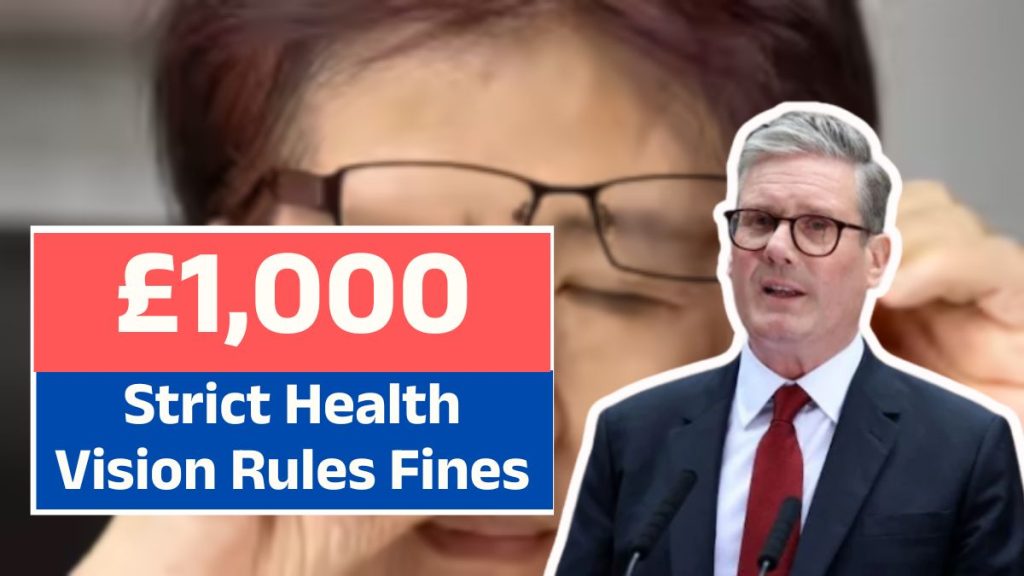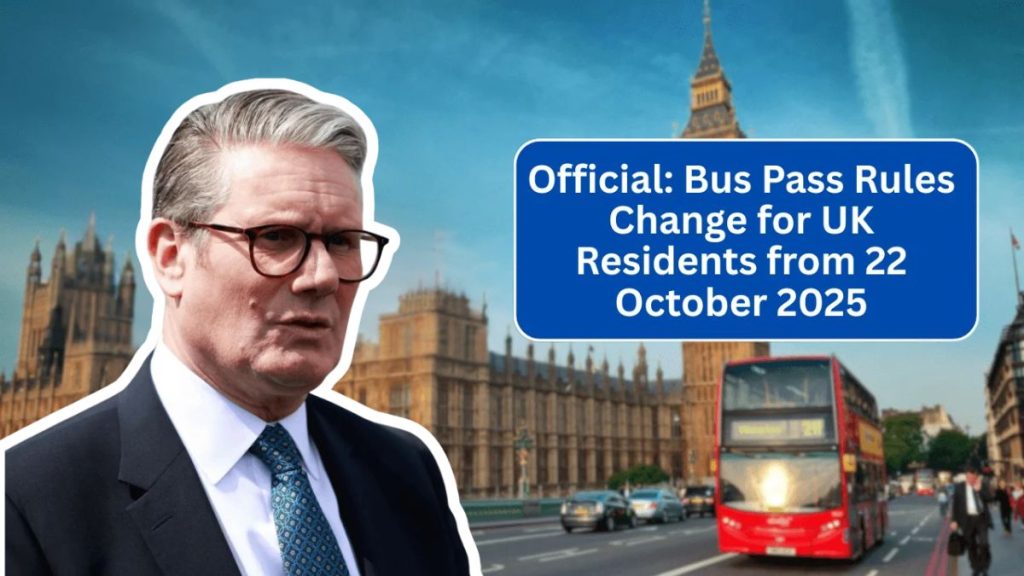The HM Revenue and Customs (HMRC) has officially confirmed that a £320 automatic bank deduction will come into effect for UK pensioners beginning 27 October 2025. This measure forms part of the government’s plan to recover small tax underpayments identified during the 2024–2025 financial year.
The change affects those whose pension income — either from the State Pension or private schemes — created minor tax shortfalls. Instead of adjusting future tax codes or requiring repayment forms, HMRC will directly debit the amount from bank accounts linked to pension payments.
Why the £320 Deduction Is Being Introduced

HMRC says the new system is designed to simplify pension-tax reconciliation and reduce bureaucracy for retirees. Each year, thousands of pensioners fall into minor underpayment due to overlapping pensions, coding errors, or unreported savings income.
Key Objectives of the Policy
- Streamline recovery of small tax underpayments without lengthy letters or delays.
- Eliminate discrepancies caused by multiple pension providers.
- Avoid backlog in PAYE adjustments and tax-code corrections.
- Increase accuracy in real-time tax reconciliation for the pension sector.
HMRC confirmed that the £320 figure will serve as a standard adjustment for most affected individuals whose underpayment total is below £500, ensuring the process remains modest and manageable.
Who Will Be Affected
The deduction will not apply universally.
Only pensioners who meet certain HMRC criteria and are identified as having minor tax underpayments will be included.
Groups Likely to Be Affected
- Pensioners receiving both State Pension and private/occupational pensions where the combined income pushed them into a higher tax bracket.
- Retirees who had incorrect PAYE codes applied during 2024–25.
- Individuals whose pensions were processed through multiple PAYE sources, creating small unpaid balances.
- Those with unreported investment or savings interest contributing to underpaid tax.
Anyone whose tax affairs are already up to date will not see a deduction. The measure is targeted only at minor imbalances uncovered in HMRC’s end-of-year reconciliation process.
How the £320 Deduction Will Be Taken
The new process will operate under HMRC’s Direct Debit Recoveries Programme, which securely links pension payment systems with authorised banks.
Step-by-Step Process
- Advance Notice: Pensioners receive written and email notification at least 14 days before 27 October 2025, confirming the amount to be deducted.
- Automatic Withdrawal: On or after the effective date, HMRC will debit the amount directly from the bank account registered for pension payments.
- Reference Tag: The deduction will appear on statements as “HMRC RECOVERY.”
- Confirmation: Once payment is collected, a receipt or confirmation message will appear in the pensioner’s Personal Tax Account (PTA).
HMRC urges all retirees to verify their contact information and bank details before October to ensure smooth processing.
Key Facts at a Glance
| Detail | Description |
|---|---|
| Effective Date | 27 October 2025 |
| Applies To | UK pensioners with minor tax underpayments |
| Average Deduction | £320 (or actual underpayment if lower) |
| Tax Year Concerned | 2024–2025 |
| Collection Method | Direct debit from pension-linked bank account |
| Reference Label | “HMRC RECOVERY” |
| Notice Period | Minimum 14 days before deduction |
Reactions from Pensioners and Experts
The policy has triggered widespread discussion among retirees and financial observers. Charities such as Age UK and the National Pensioners Convention (NPC) have expressed concern about transparency, urging HMRC to ensure clear communication and accessible appeals.
Financial analysts, however, describe the move as a “practical fix” that avoids costly investigations for small discrepancies. They note that the system’s automation reduces human error and ensures quicker closure of underpayment cases.
Pensioners will also retain full rights to query or dispute deductions if they believe the amount is incorrect.
What Pensioners Should Do Before 27 October
To prevent confusion or payment errors, HMRC recommends all affected individuals complete a few checks well before the deduction date.
Pre-Deduction Checklist
- Check your tax code – confirm it matches your pension and income circumstances.
- Update bank details – ensure HMRC holds the correct account linked to your pension.
- Log in to your Personal Tax Account (PTA) – review any pending notices or tax summaries.
- Contact HMRC directly – if unsure about your records or notices received.
- Maintain sufficient balance – ensure at least £320 is available on 27 October 2025 to avoid transaction failure.
Completing these steps ensures that any deduction is accurate and avoids unnecessary follow-ups.
Possible Exemptions and Appeals
Certain pensioners may qualify for exemption or may appeal against the deduction if specific conditions apply.
Potential Exemptions
- Individuals with total income below the personal-allowance threshold.
- Pensioners affected by recent bereavement or critical illness.
- Those who can prove prior repayment of their outstanding balance.
Affected individuals can appeal within 30 days of receiving their deduction notice by submitting evidence via their Personal Tax Account or by post.
Once reviewed, any over-deducted amount will be refunded directly to the pensioner’s bank account.
Financial Impact and Sector Implications
The £320 scheme reflects HMRC’s broader drive toward digital tax management and automation.
Officials estimate that this approach could save millions in administrative costs and reduce pension-tax errors significantly.
Industry experts believe the reform could serve as a prototype for future automatic reconciliations across other welfare or benefits systems. However, they warn that clear communication remains essential so that older citizens fully understand each step and their rights.
Protecting Against Scams
HMRC has issued a strong warning about potential fraud attempts exploiting the new deduction.
Safety Tips for Pensioners
- HMRC never requests bank details via text, email, or unsolicited phone calls.
- Always verify the sender’s address ending in @hmrc.gov.uk.
- Report suspicious communications through GOV.UK → Report Fraud.
- Never share personal information or click unfamiliar links.
These precautions ensure pensioners can distinguish legitimate HMRC correspondence from fraudulent attempts.
What Happens After 27 October 2025
Following the initial round of deductions, HMRC will conduct a review of system performance to ensure fairness and accuracy. Officials have confirmed that no further deductions will occur without additional notice or clear explanation.
Pensioners are advised to keep all HMRC correspondence for their records and check their online dashboard regularly. This initiative, HMRC says, reflects its ongoing commitment to making tax adjustments smoother, faster, and more transparent for UK citizens.
Summary Table – HMRC £320 Deduction 2025
| Aspect | Details |
|---|---|
| Effective Date | 27 October 2025 |
| Average Deduction | £320 |
| Purpose | Recover small pension-related tax underpayments |
| Method | Direct debit (“HMRC RECOVERY”) |
| Affected Group | Pensioners with minor discrepancies |
| Appeal Window | 30 days from notice |
| Administered By | HM Revenue and Customs (HMRC) |
FAQs
Q1. When will the £320 HMRC deduction take place?
The deduction will occur automatically on or after 27 October 2025, following advance notice by post or email.
Q2. Who will be affected by the new rule?
Only pensioners with minor tax underpayments (below £500) from the 2024–25 tax year, identified by HMRC’s reconciliation process.
Q3. How will it appear in my bank account?
The debit will show on statements as “HMRC RECOVERY.”
Q4. Can I dispute or appeal the deduction?
Yes. Pensioners may file an appeal within 30 days through their Personal Tax Account or by post if they believe the deduction is incorrect.
Q5. How can I avoid issues before the deduction date?
Verify your tax code, bank details, and Personal Tax Account records, and ensure at least £320 is available on 27 October 2025 to avoid transaction errors.














